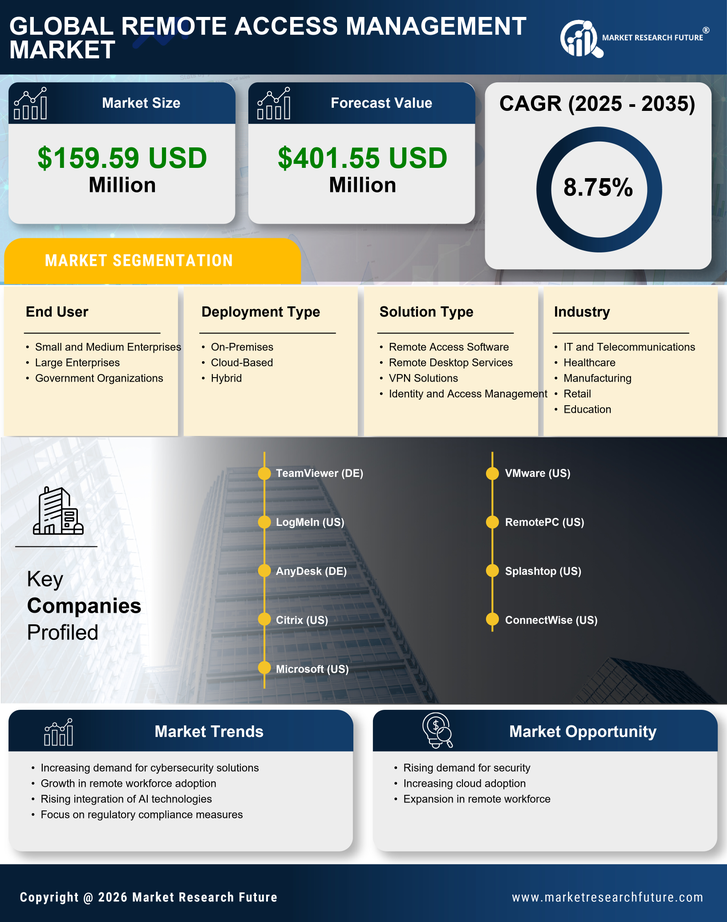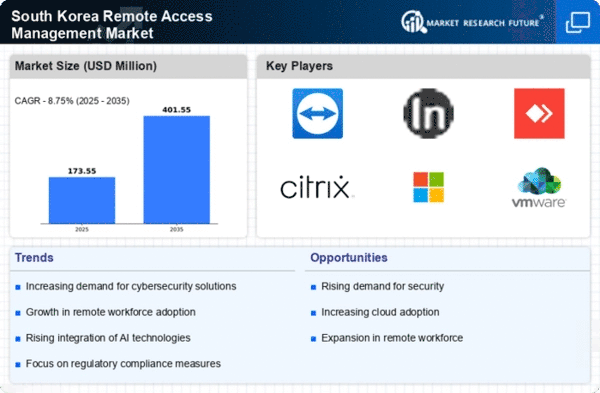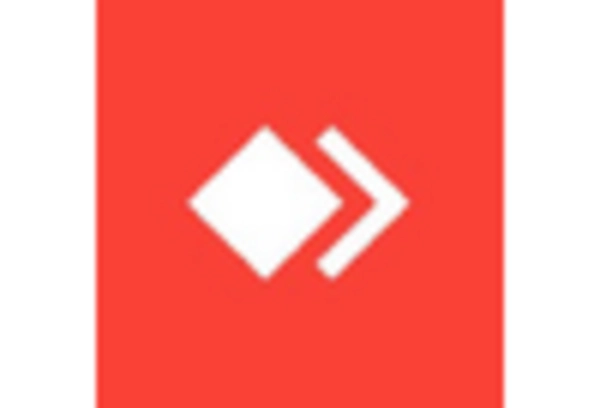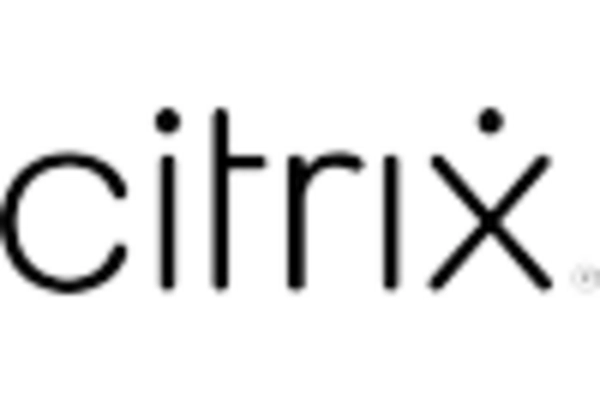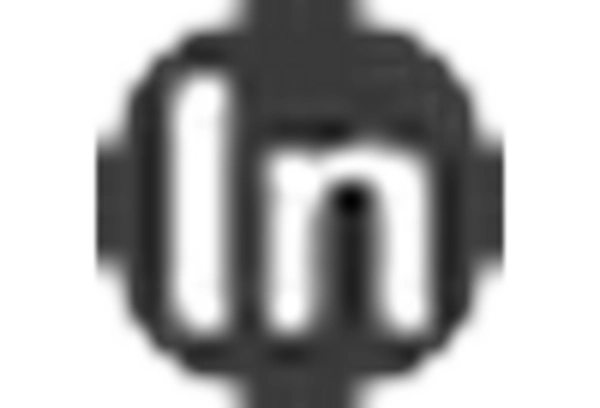Increased Regulatory Scrutiny
The market is also shaped by increased regulatory scrutiny in South Korea. As data protection laws become more stringent, organizations are required to comply with various regulations governing data access and security. This regulatory environment compels businesses to adopt comprehensive remote access solutions that ensure compliance with legal standards. For instance, the Personal Information Protection Act (PIPA) mandates strict guidelines for data handling, which influences the purchasing decisions of companies. Consequently, the remote access-management market is likely to expand as organizations invest in solutions that not only enhance security but also facilitate compliance with evolving regulatory requirements.
Escalating Cyber Threat Landscape
The remote access-management market is significantly influenced by the escalating cyber threat landscape in South Korea. With cyberattacks becoming increasingly sophisticated, organizations are compelled to invest in robust remote access solutions to safeguard sensitive data. Reports indicate that cyber incidents have surged by over 40% in the past year, prompting businesses to prioritize security measures. This heightened awareness of cybersecurity risks drives the demand for advanced remote access-management tools that offer features such as multi-factor authentication and encryption. As companies strive to protect their digital assets, the remote access-management market is likely to witness substantial growth, as organizations seek to mitigate vulnerabilities associated with remote connectivity.
Growing Importance of User Experience
User experience is emerging as a critical factor in the remote access-management market. As organizations implement remote access solutions, the ease of use and accessibility for employees become paramount. In South Korea, companies are increasingly prioritizing user-friendly interfaces and seamless integration with existing systems. A recent survey indicates that 70% of employees prefer remote access tools that are intuitive and require minimal training. This focus on user experience drives the demand for remote access solutions that enhance productivity and reduce friction in remote work environments. As a result, the remote access-management market is likely to see innovations aimed at improving user satisfaction and engagement.
Rising Demand for Flexible Work Arrangements
The remote access-management market experiences a notable surge in demand due to the increasing preference for flexible work arrangements in South Korea. Organizations are recognizing the necessity of enabling employees to work from various locations while maintaining productivity. This shift is reflected in a reported 30% increase in remote work adoption among companies in the region. As businesses seek to implement effective remote access solutions, the market is poised for growth. The ability to securely access corporate resources from home or other remote locations is becoming a critical requirement. Consequently, the The remote access management market is adapting to meet these evolving needs. It provides tools that facilitate seamless connectivity and collaboration, thereby enhancing overall operational efficiency.
Technological Advancements in Remote Access Solutions
Technological advancements play a pivotal role in shaping the remote access-management market. Innovations such as artificial intelligence and machine learning are being integrated into remote access solutions, enhancing their functionality and security. In South Korea, the adoption of these technologies is projected to increase by 25% over the next few years, as organizations seek to leverage automation for improved efficiency. These advancements enable real-time monitoring and threat detection, allowing businesses to respond swiftly to potential security breaches. As a result, The remote access management market is evolving to incorporate these cutting-edge technologies. This evolution provides organizations with more effective tools to manage remote access securely and efficiently.
